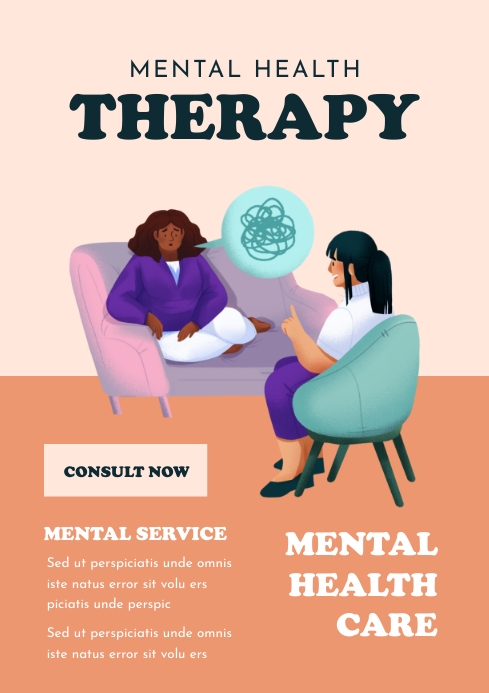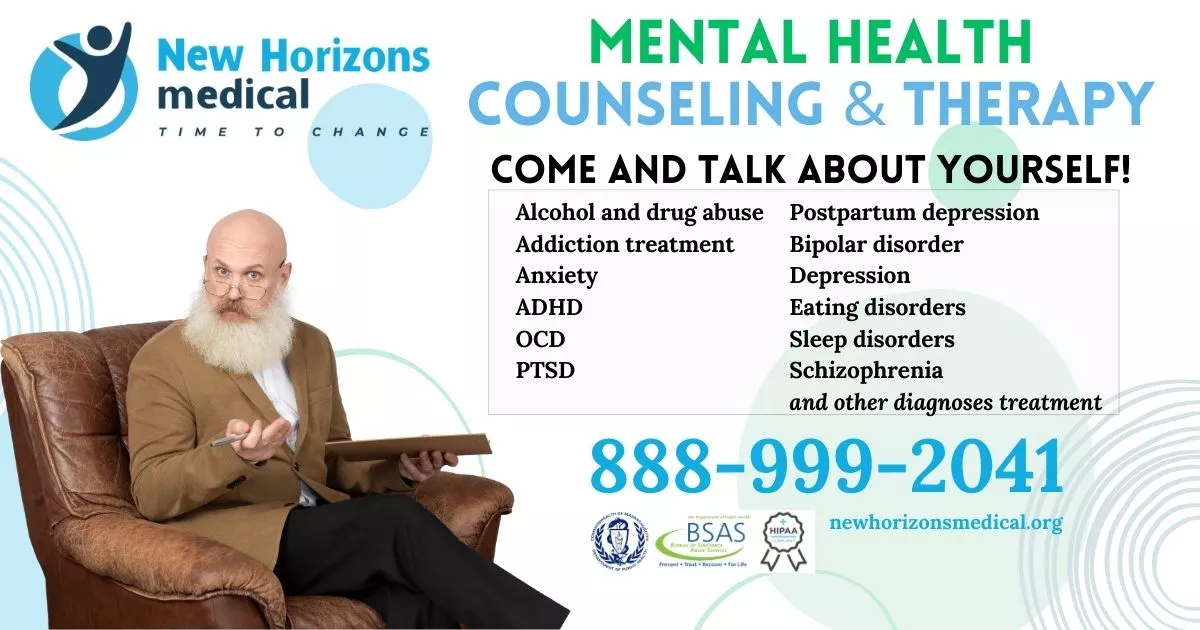Unlocking the Keys of Mental Health And Wellness: An Introduction of Therapy and Treatment Choices
Psychological wellness is a facility and essential aspect of overall well-being. Numerous counseling and treatment alternatives exist to attend to numerous psychological difficulties. Each method provides unique benefits and methods customized to private requirements. Recognizing these alternatives is crucial for any person looking for to enhance their mental health. Marriage Counselling. What aspects should one take into consideration when exploring these methods? The response may reveal a course to a healthier emotion
Understanding Mental Wellness and Its Value
Mental health incorporates the emotional, psychological, and social health of individuals, substantially affecting how they assume, feel, and act. Its value can not be overstated, as it affects every element of life, including connections, job performance, and total lifestyle. Individuals with good mental health and wellness tend to deal with tension better, maintain healthier partnerships, and make informed decisions. On the other hand, poor psychological health and wellness can lead to psychological distress, impaired functioning, and various psychological disorders, which might call for expert treatment. Comprehending psychological health is necessary for recognizing the indicators of distress and the need for support. Understanding likewise advertises empathy and reduces stigma, urging individuals to seek help when necessary. By focusing on psychological wellness, areas can promote settings that support psychological wellness, eventually bring about healthier, a lot more resilient people. This foundation acts as an important step toward efficient mental wellness counseling and treatment choices.
Kinds Of Therapy Strategies
Counseling methods differ commonly, each tailored to satisfy the special needs of people seeking support. Amongst the most usual types are cognitive-behavioral treatment (CBT), which concentrates on determining and altering adverse idea patterns, and person-centered therapy, which highlights empathy and approval. Psychodynamic therapy explores subconscious procedures and past experiences to understand present actions, while solution-focused short therapy intends to determine services as opposed to explore problems.Additionally, family therapy addresses relational characteristics and interaction within family members, cultivating healthier communications. Group therapy provides a public room for participants to share experiences and support one an additional. Various other techniques include existential therapy, which urges people to find significance and function, and art or music treatment, which uses creative expression as a healing tool. Each method provides distinct strategies and approaches, enabling customers to locate the most appropriate technique for their personal development and recovery journeys.
Exploring Different Treatment Techniques
In the domain of psychological health and wellness therapy, numerous treatment modalities provide distinct approaches to therapy. Cognitive Behavior modification stresses the link in between habits and ideas, while Psychodynamic Therapy explores subconscious influences on emotional health. Furthermore, Mindfulness-Based Techniques advertise present-moment awareness as a way to boost emotional regulation and general psychological health and wellness.
Cognitive Behavior Modification
Cognitive Behavior Treatment (CBT) sticks out as one of one of the most commonly exercised and researched techniques in psychological health treatment. This strategy concentrates on the affiliation in between behaviors, thoughts, and feelings, stressing that modifying negative thought patterns can cause enhanced psychological wellness and behavior adjustments. CBT is structured, normally entailing a minimal variety of sessions, and intends to gear up individuals with functional abilities to manage their symptoms. It works for a range of conditions, including stress and anxiety conditions, clinical depression, and post-traumatic stress and anxiety condition. By making use of strategies such as cognitive restructuring and exposure therapy, CBT cultivates strength and encourages customers to challenge difficulties head-on, making it a useful choice in the landscape of psychological health and wellness therapies.
Psychodynamic Therapy Methods
Psychodynamic therapy techniques provide a deep exploration of the unconscious mind and its impact on behavior and emotional well-being. Rooted in Freudian theory, these approaches stress the relevance of very early childhood years experiences and subconscious disputes. Through techniques such as totally free association, desire evaluation, and transference, individuals gain understanding right into their sensations and ideas, promoting self-awareness and understanding. This therapeutic method motivates customers to discover repressed feelings and unsettled issues, which can be pivotal in addressing existing mental challenges. By checking out the interaction between existing habits and past experiences, psychodynamic treatment aims to advertise emotional healing and individual development. Ultimately, it offers a framework for individuals to check out complicated inner characteristics that affect their psychological wellness.

Mindfulness-Based Techniques
While typical treatments frequently concentrate on previous experiences, mindfulness-based strategies prioritize present-moment recognition as a path to emotional wellness. These methods, consisting of mindfulness-based cognitive treatment (MBCT) and mindfulness-based anxiety reduction (MBSR), motivate people to engage completely with their ideas and feelings without judgment. Specialists find out to observe their frame of minds, cultivating a better understanding of emotional triggers and reactions. This technique not only eases signs of stress and anxiety and clinical depression but also enhances general mental durability. By incorporating mindfulness workouts, such as reflection and deep breathing, customers cultivate a feeling of tranquility and quality. Eventually, mindfulness-based techniques empower people to browse life's challenges with raised recognition and acceptance, advertising a healthier relationship with their ideas and emotions.
The Function of a Specialist or Counselor
An experienced specialist or counselor plays a crucial role in supporting individuals via their psychological health and wellness journeys. They offer a safe, non-judgmental area where clients can reveal their thoughts and feelings freely. Mental Health Resources. By using various therapeutic strategies customized to every person's requirements, specialists assist clients discover underlying problems that may add to their psychological wellness challenges.Therapists provide assistance and devices to deal with anxiety, stress and anxiety, anxiety, and other emotional difficulties. Their training outfits them to acknowledge patterns in behavior and assumed processes, helping with insights Mental Health Resources that result in personal growth. They also cultivate a solid therapeutic partnership, which is important for successful outcomes.Moreover, therapists stay committed to privacy and honest requirements, making sure a trusting setting. Eventually, the role of a specialist or counselor is to encourage individuals, urging them to create durability and healthier coping approaches while steering via life's intricacies
How to Choose the Right Counseling or Treatment Choice
Choosing the best counseling or treatment alternative starts with assessing individual requirements. It is necessary to recognize personal challenges and objectives before discovering different treatment designs. This foundational step can substantially affect the performance of the chosen method.
Analyze Your Needs

Just how can people properly assess their psychological health requires when reviewing counseling or therapy options? First, they ought to assess their psychological state and identify particular concerns, such as partnership, anxiety, or stress and anxiety difficulties. Journaling can be a useful tool for tracking ideas and sensations over time. Additionally, individuals might take advantage of looking for feedback from trusted buddies or family participants concerning regarded changes in behavior or mood. It is likewise practical to examine individual objectives for treatment, such as boosting coping skills or getting insight into personal patterns. Finally, investigating different therapy techniques and their viability for details needs can aid in making an informed option. Inevitably, self-awareness plays a crucial role in choosing the best path for mental health assistance.
Explore Therapy Designs
While going across the diverse landscape of treatment choices, individuals should take into consideration numerous designs of counseling to discover the most effective suitable for their special needs. Cognitive Behavior Modification (CBT) concentrates on altering negative idea patterns, while Psychodynamic Therapy explores past experiences and subconscious procedures. Humanistic approaches highlight personal growth and self-actualization, fostering a supportive setting. Additionally, mindfulness-based therapies cultivate present-moment understanding, aiding psychological regulation. For those seeking framework, Solution-Focused Short Treatment targets particular objectives and services. Group treatment offers a public setting for shared experiences and support. Inevitably, individuals should certainly reflect on their choices, convenience degrees, and particular obstacles, ensuring they choose a healing design that resonates with their personal trip towards mental wellness.
Getting Over Barriers to Looking For Aid

The Benefits of Therapy and Treatment for Mental Wellness
Looking for assistance for psychological wellness challenges can cause substantial enhancements in overall well-being. Counseling and treatment give individuals with a secure space to explore their sensations and ideas, promoting self-awareness and individual development. These specialist solutions equip customers with coping techniques and analytical abilities customized to their one-of-a-kind situations.Moreover, therapy can minimize signs and symptoms of anxiousness, depression, and other mental health disorders, enhancing emotional resilience. Regular sessions promote responsibility and motivate people to establish and accomplish personal goals. Through various therapeutic modalities, such as cognitive-behavioral therapy or mindfulness techniques, customers find out to reframe adverse ideas and establish healthier behaviors.Additionally, the therapeutic relationship itself can be a source of assistance, aiding to battle seclusion and solitude. In general, engaging in counseling and therapy is a proactive action towards accomplishing psychological wellness, enabling individuals to lead even more satisfying lives.
Often Asked Concerns
How Much Time Does Therapy or Treatment Generally Last?
The duration of therapy or treatment varies considerably, commonly lasting from a couple of sessions to numerous months or years. Aspects influencing this include the person's details requirements, the type of treatment, and restorative goals.
What Should I Anticipate Throughout My First Session?
Throughout the very first session, individuals can anticipate an introduction, conversation of worries, and the therapist's strategy. They might complete analyses and establish goals, promoting a safe setting for open communication and structure rapport.

Exist Any Risks Related To Therapy?
Therapy can involve risks, such as emotional discomfort, susceptability, or confronting uncomfortable memories. While these obstacles may arise, they can also lead to personal development and recovery, making the therapeutic procedure facility yet possibly satisfying.
Exactly How Can I Tell if My Therapist Is a Good Fit?
Determining if a therapist is an excellent fit entails assessing comfort, communication design, and healing technique. Positive relationship and progression in the direction of goals are indicators of an ideal suit, vital for effective psychological wellness support.
Will My Insurance Cover Therapy or Treatment Sessions?
Establishing insurance policy protection for counseling or therapy sessions frequently calls for getting in touch with the insurance coverage service provider straight. Policies differ significantly, so people must validate benefits, co-pays, and any essential pre-approvals before pursuing treatment services. Amongst the most common kinds are cognitive-behavioral treatment (CBT), which concentrates on identifying and transforming negative idea patterns, and person-centered therapy, which stresses empathy and approval. Psychodynamic therapy discovers unconscious procedures and past experiences to understand present behavior, while solution-focused short treatment aims to recognize services instead than investigate problems.Additionally, family members therapy addresses relational dynamics and interaction within families, promoting much healthier interactions. Other methods include existential treatment, which encourages people to locate definition and purpose, and art or songs therapy, which uses creative expression as a healing tool. Cognitive Behavioral Therapy stresses the link between behaviors and thoughts, while Psychodynamic Therapy checks out subconscious impacts on psychological well-being. Cognitive Behavioral Therapy (CBT) concentrates on transforming unfavorable idea patterns, while Psychodynamic Treatment discovers past experiences and subconscious procedures.